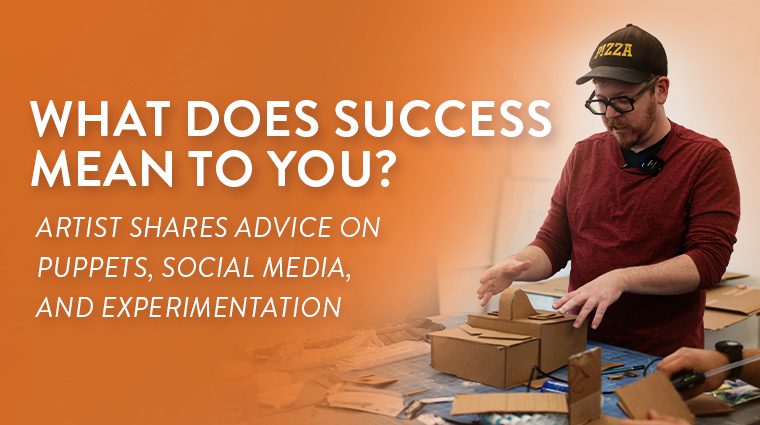Cereal boxes, old packaging, and miscellaneous cardboard – oh my! These are the materials RMCAD students worked with during a recent visiting artist workshop. What may seem like trash to you or me is in fact the preferred medium of guest artist, Wesley Hall.
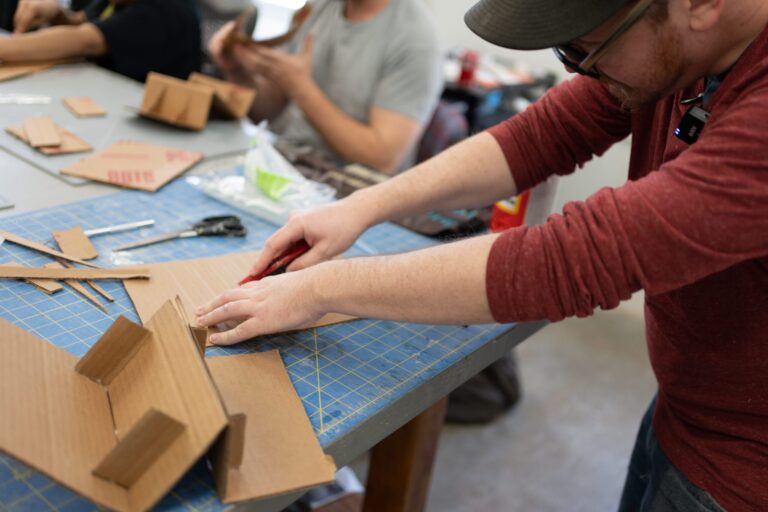
You might recognize Hall as an artist and online sensation with more than 22,000 followers on Instagram. Hall is well-known for his use of upcycled materials in the creation of puppets, but he is also an illustrator for his comic, Pizza Dad. Hall joined us on campus to share a thing or two about the craft of puppet design and how he got started in the medium, saying “I love making cardboard art because it’s straightforward to put together. I think it’s one of those mediums that anyone can enter. The costs associated are really low. I think it’s that kind of stuff that keeps people out of art a lot of the time.”
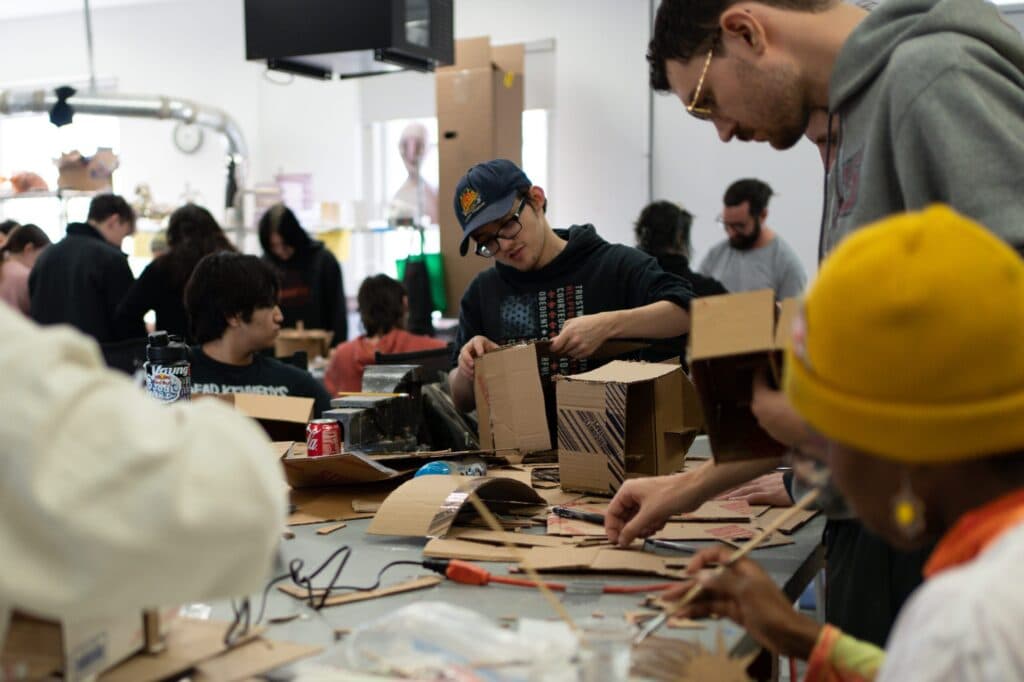
During the workshop, students from all programs were invited to work alongside Hall in the creation of their own puppets. Hall instructed students on the fundamentals of puppet creation from cutting cardboard to priming paint, character design, and the art of creating colorful expressions. He shared that his journey into puppetry began just four to five years ago during a big move when he acquired a lot of cardboard. “I’d been a lifelong fan of the Muppets and all the puppetry that came before, but all that stuff seemed really complicated to make,” shared Hall. “I wanted to dumb it down and I thought -I have cardboard, a cutter, and a hot glue gun – I think I could do it.! Worst comes to worst, if my cardboard sculpture doesn’t work, I can just recycle it and call it a day.”
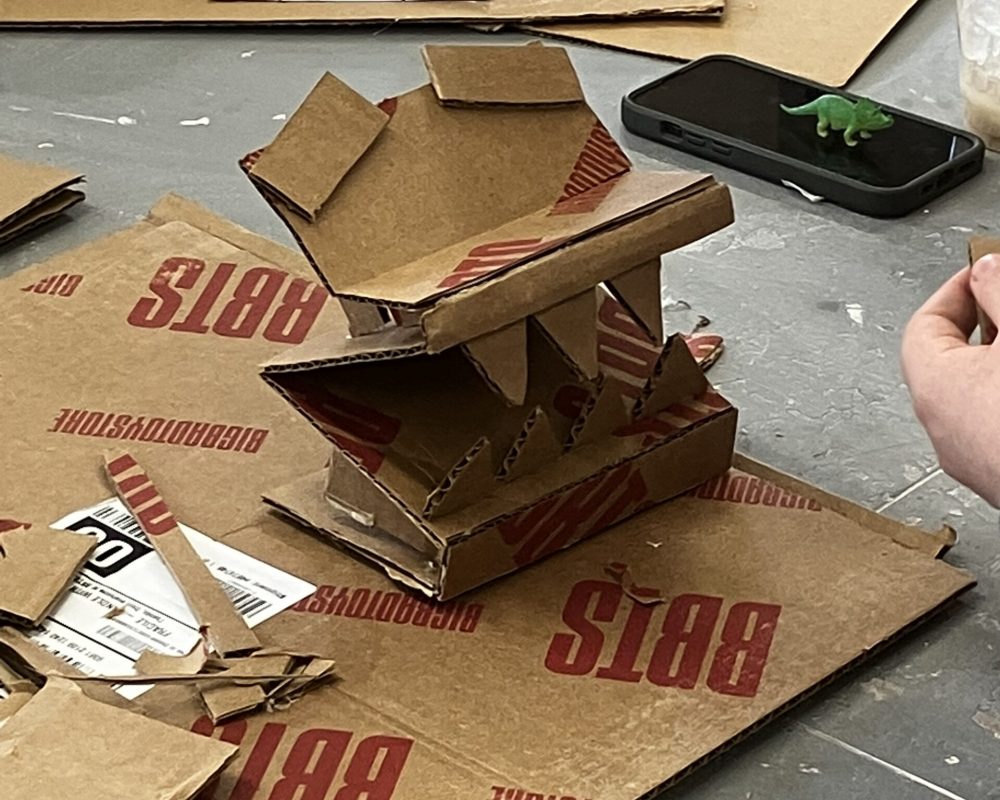
While puppets were the focus of the workshop, Hall spoke about how he enjoys working in other mediums and how he applies the skills he has learned to different styles of work.“I would describe myself as a lifelong dabbler. I believe in always figuring out new things,” says Hall. “Anytime something seems interesting and cheap and easy to do, I usually like to try it. Over the years, I’ve picked up everything from pixel art and digital illustration to 3D modeling and of course cardboard.”
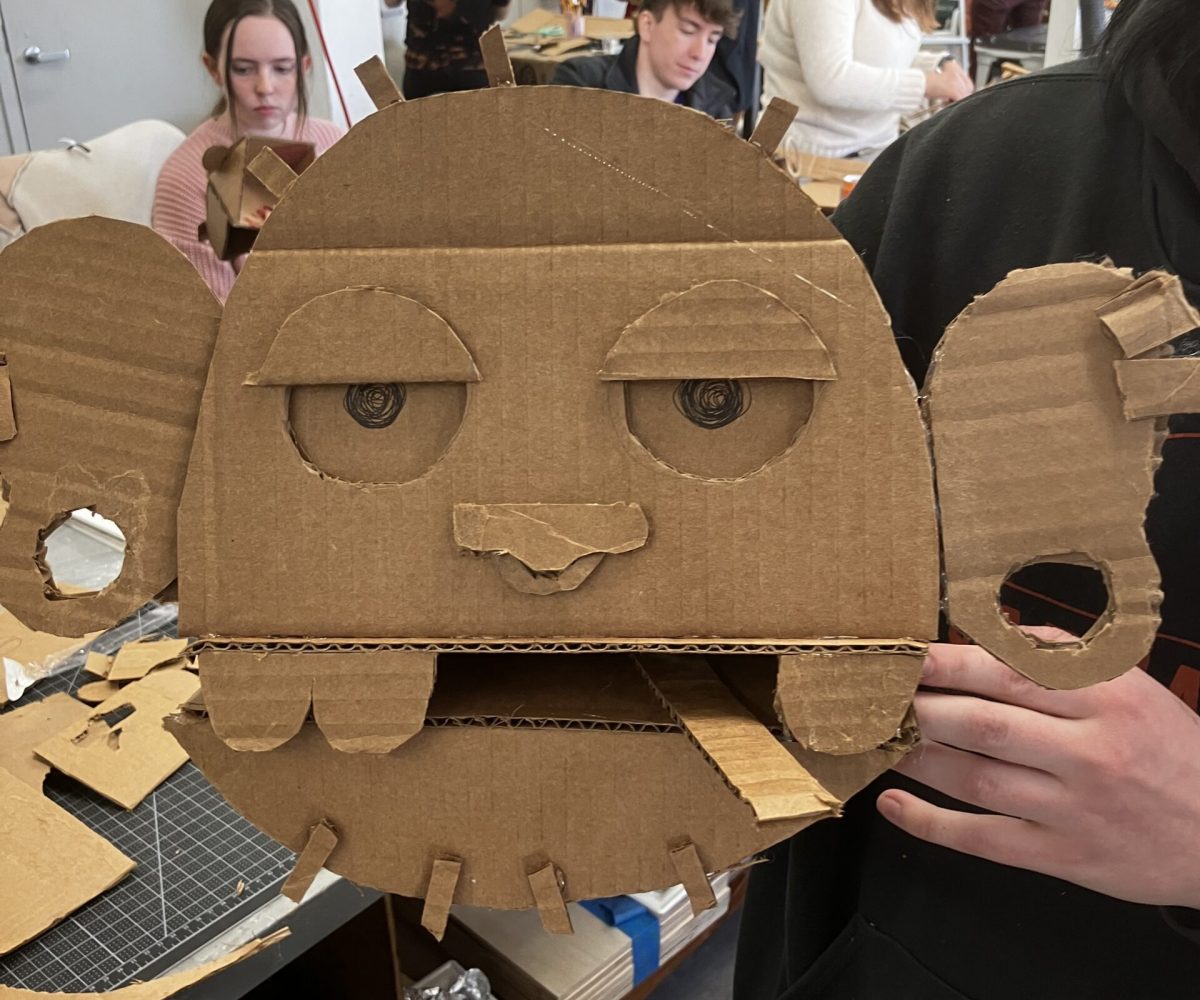
This tenacious mindset of taking on new projects no matter the medium was especially apparent in the students who showed up for Hall’s workshop. Majors from all across RMCAD explored and created their own unique puppets. An Art Education student shared, “It was fun to learn the relationship between cardboard and hot glue. I didn’t know it was that effective at bonding together.” While a 2D Animation student expressed, “I think the most interesting thing I learned in today’s workshop is how to use 2D pieces to create something 3D. It gives me a better idea of the 3D scope in a 2D world.”
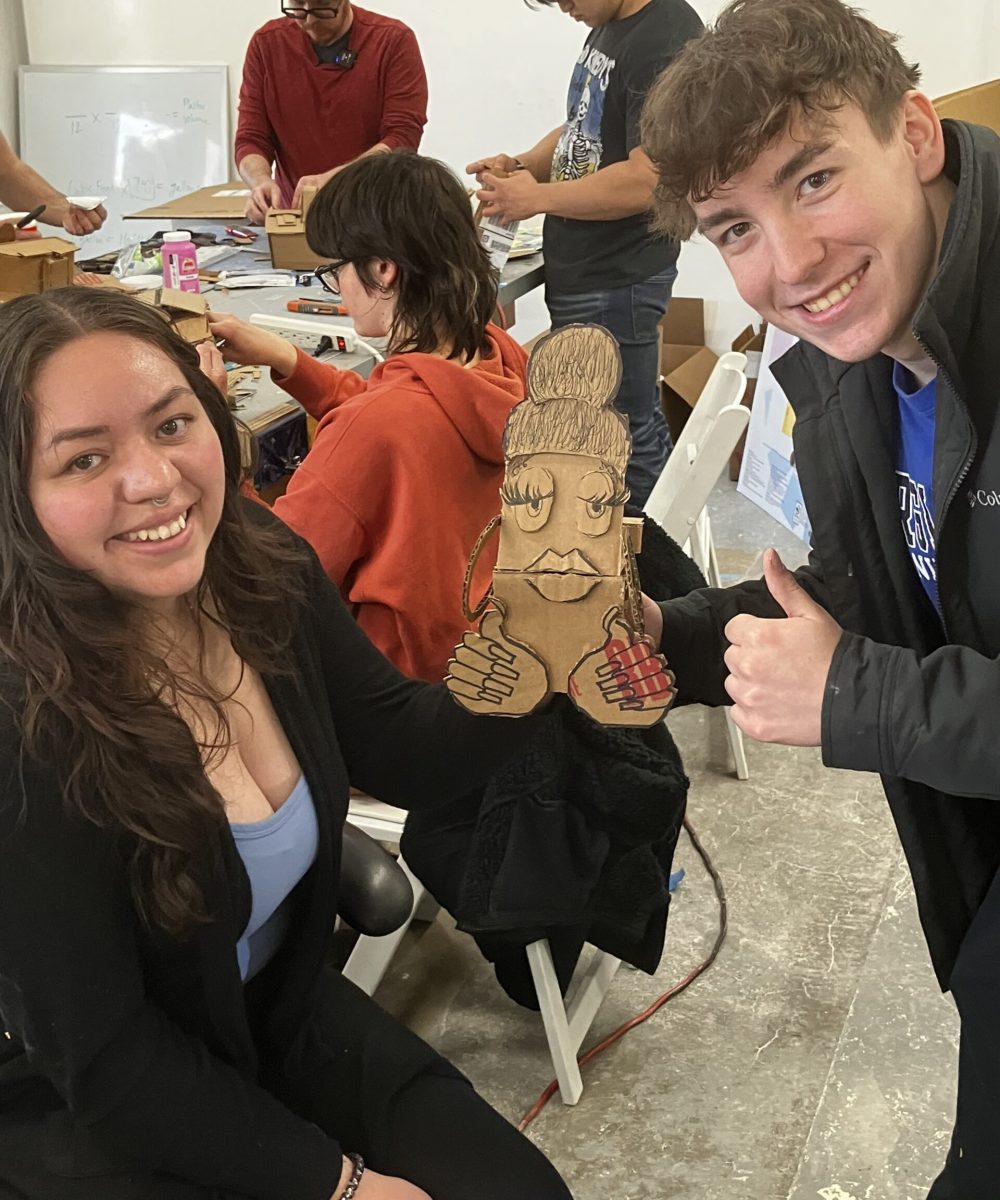
However, like all artists, Hall shared he is no stranger to creative block. “It’s always good when you get stuck on one project to have something else to go to,” says Hall. I don’t even think that’s just art related, I think that’s just true in life. “Figuring out how to build something using cardboard has helped me think about building 3D elements online, and vice versa, which also has helped my problem-solving skills.”
RMCAD students at Hall’s workshop definitely seemed to agree with this approach and found some interesting lessons amidst the difficulty of cardboard puppetry. One Graphic Design student remarked that “The hardest part of working with cardboard is getting it to bend the way you want. I can apply that to graphic design. In Illustrator, you build shapes and elements, so knowing how to layer and bend are important skills.”
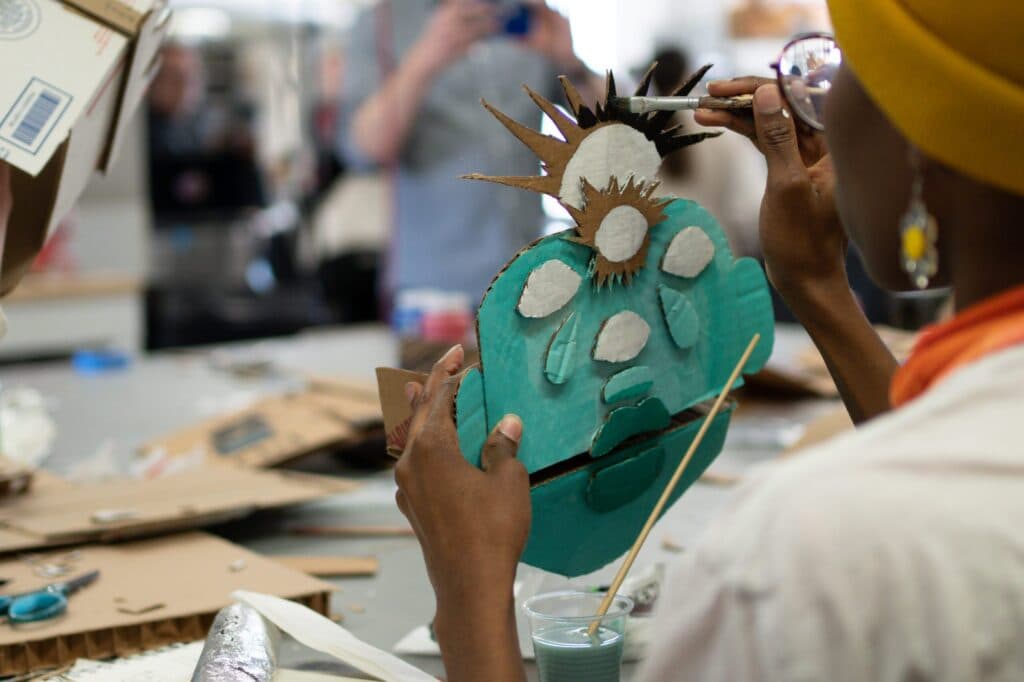
Hall went on to discuss the role social media plays as an artist and entrepreneur. “People act as though success means having a lot of followers on social media, but really what you need is a community,” says Hall. “Success for me is making something that I really engage with and want to show off. I’ve seen people be successful with just 3 or 4000 followers.” Said Hall, when asked about how much time and attention artists should focus on social media platforms such as Instagram. He added that artists who build the best communities on social media do so by first creating great work. “The work is what gets them in the door, and the person/artist is what keeps them there and connected,” shares Hall. “People are more keen to buy anything when they also know a little bit about the person who’s behind it. I think people are looking for a lot more human touch so don’t be afraid to put yourself out there.”
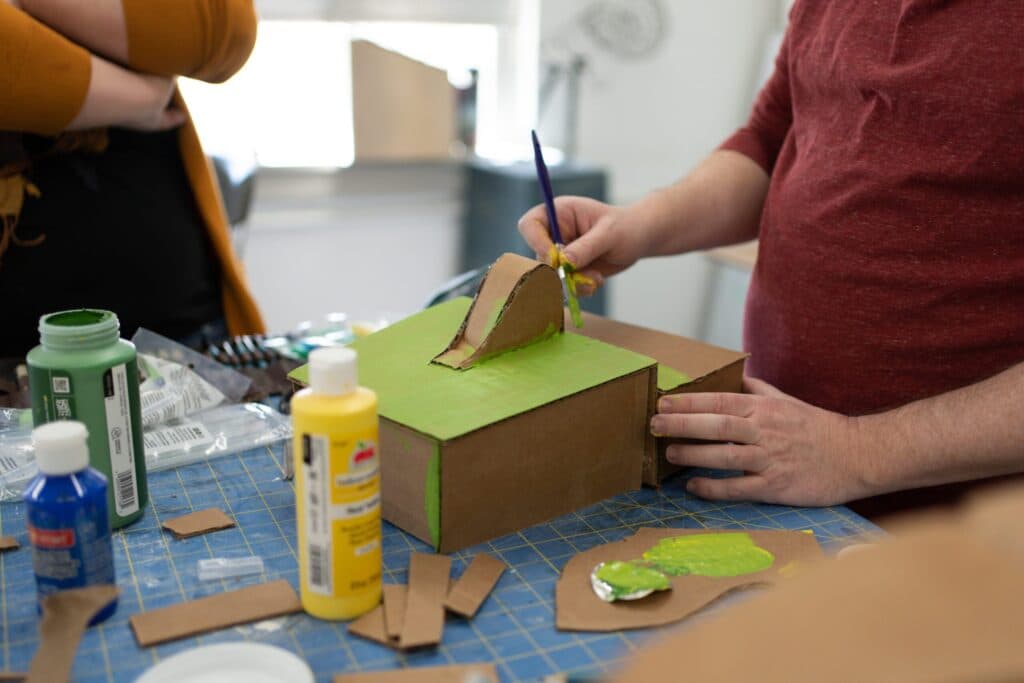
Often as artists, we have misconceptions about what art is and what it means to be successful. However, when you have a community to share your work with, being a successful artist can be as simple and as charming as cardboard boxes and hot glue. “If I were to go back and give advice to myself as a young artist, I would say don’t be afraid to experiment. Don’t worry about who you’re going to bother, just go for it and see what you can learn,” said Hall, encouraging artists of all ages to take advantage of the resources available to them. RMCAD students certainly took advantage of the resources in Hall’s workshop, remarking that they learned about “patience”, “fun” and “creativity”.
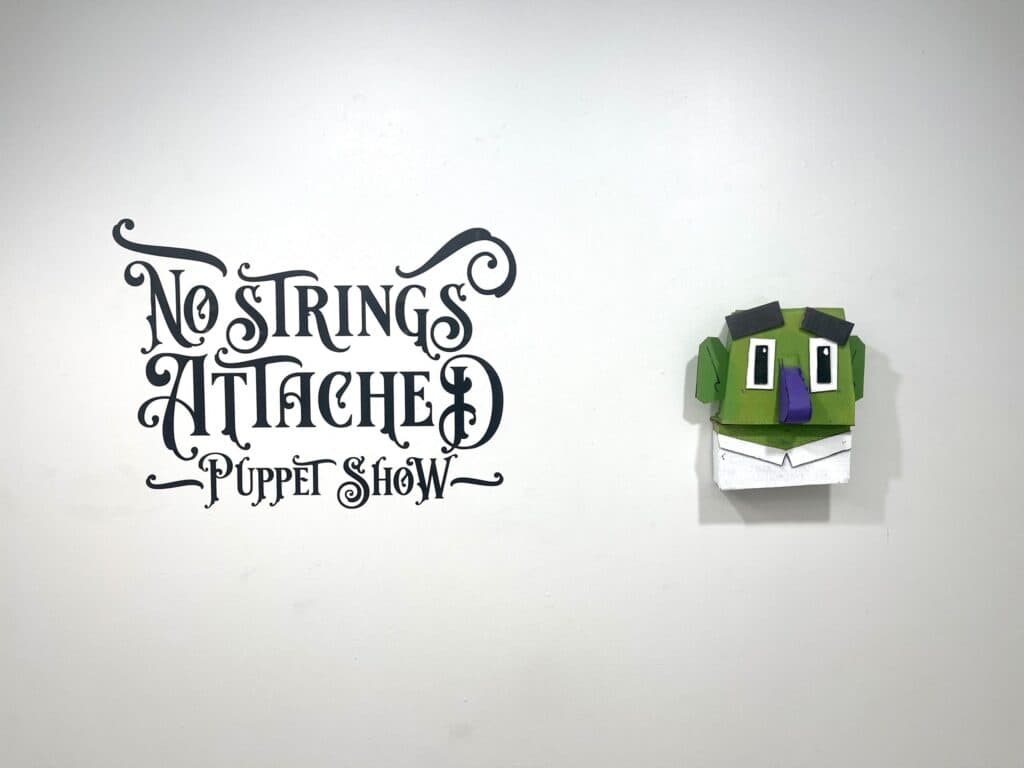
A very special thank you to Wesley Hall for speaking on campus and sharing his knowledge with the RMCAD community. The “No Strings Attached” show consists of student work from this workshop, on display in the EPIC building. To learn more about Wesley Hall and his work, click here.
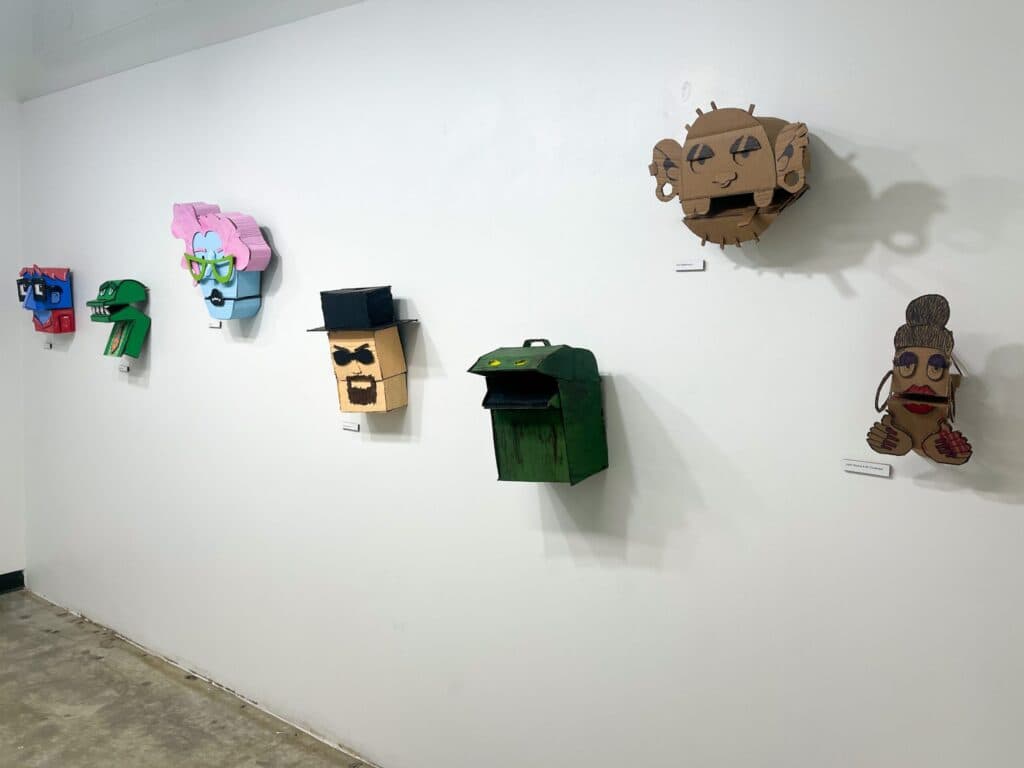
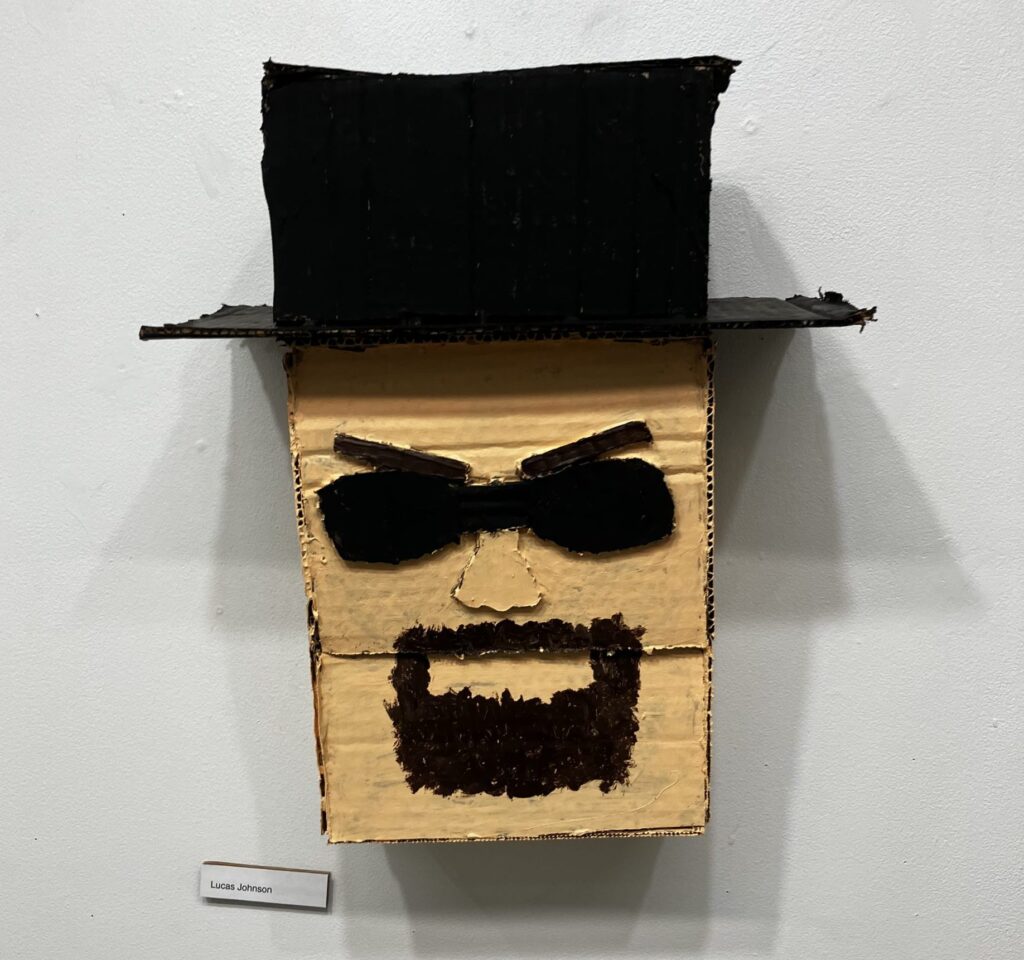
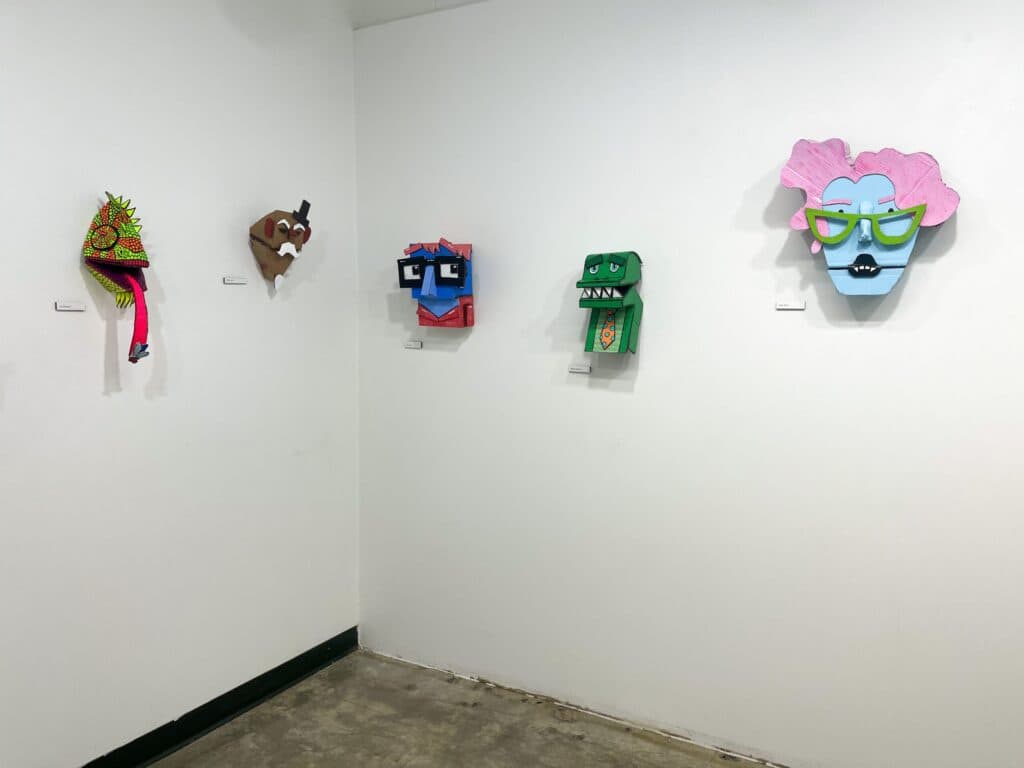
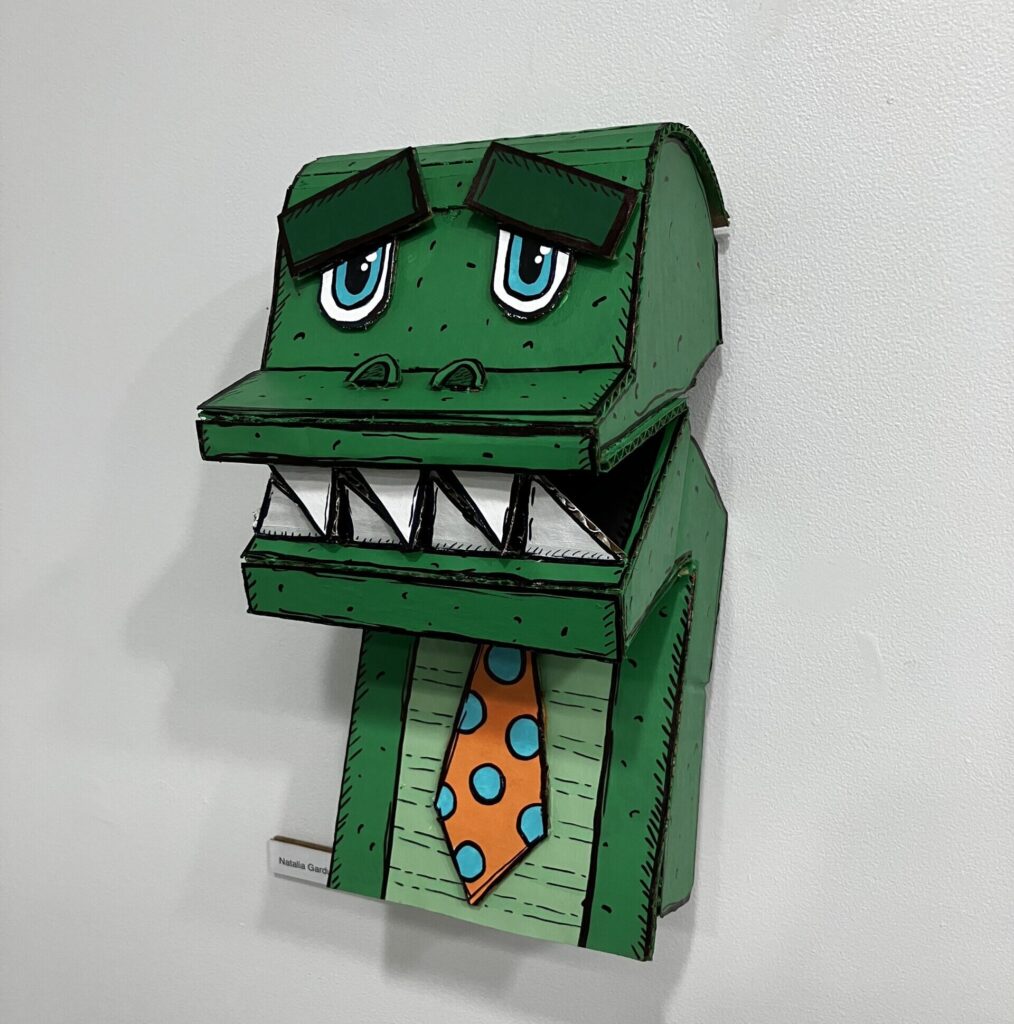
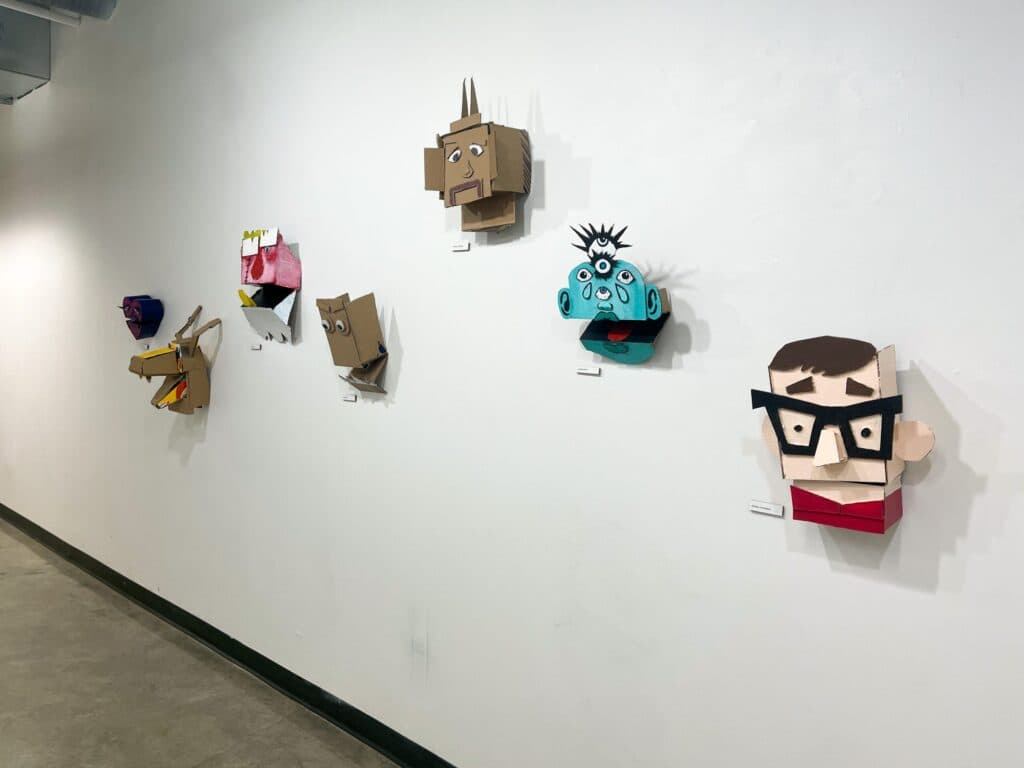
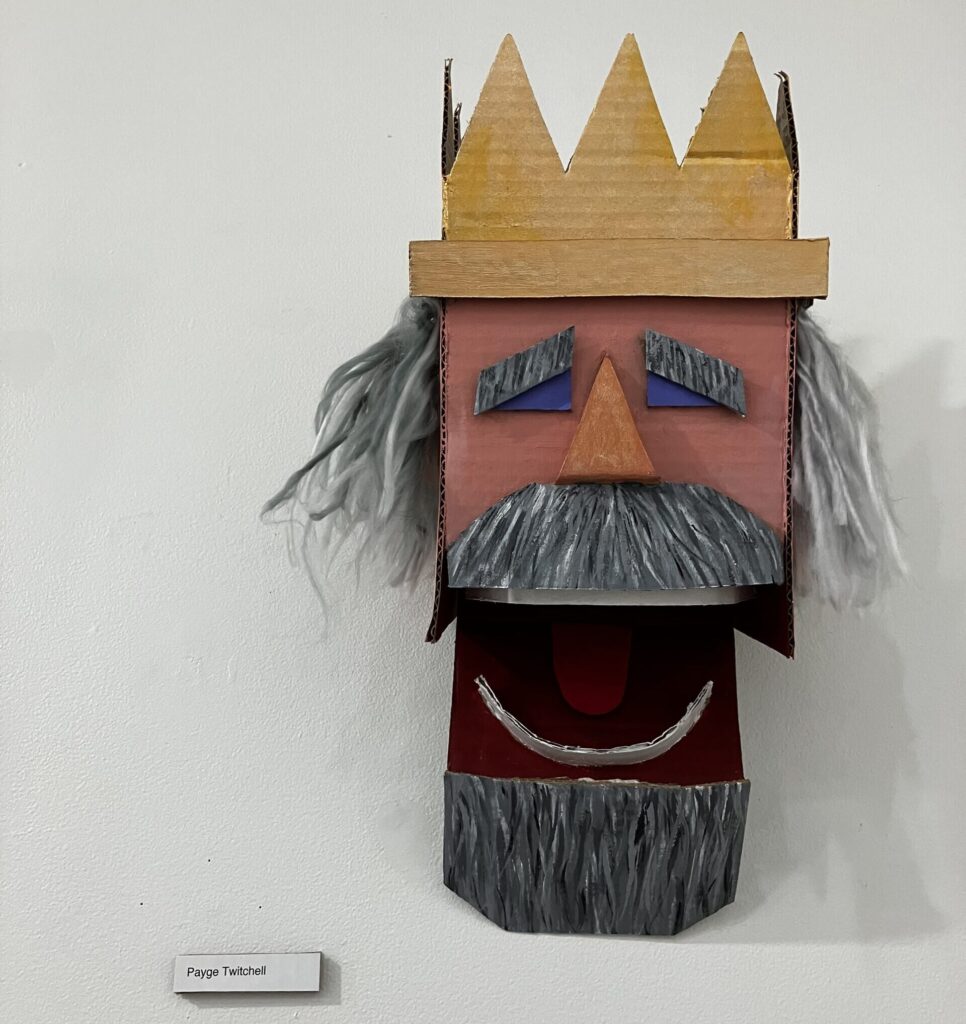
Many of the quotes in this story have been edited for brevity and clarity by the author, but are meant to retain the significance and purpose of the original speaker.
